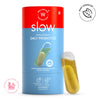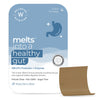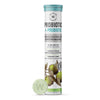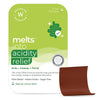Acidity can be a real mood-breaker. That uncomfortable burning sensation in your chest, the constant burping, or the occasional bitter aftertaste—it's not just annoying, but also a sign that your gut needs attention. While antacids offer temporary relief, they don’t tackle the root cause. That’s where the power of probiotics for acidity and prebiotics comes in.
Understanding Acidity: More Than Just a Stomach Issue
Acidity, or acid reflux, occurs when stomach acid flows back into the esophagus, causing irritation. While spicy foods, excessive caffeine, and stress are common culprits, an imbalanced gut microbiome plays a crucial role. Your digestive system thrives on a delicate balance of good and bad bacteria. When this balance is disrupted, your gut lining weakens, leading to increased acid production and poor digestion.
This is where probiotics and prebiotics step in to restore equilibrium and improve digestion at the source.
Probiotics
Probiotics are live microorganisms that support a healthy gut by replenishing beneficial bacteria, strengthening the gut lining, and improving digestion. Choosing the best probiotics for acid reflux can help reduce inflammation in the gut, regulate stomach acid levels, and enhance nutrient absorption—ultimately minimizing acidity episodes.
When selecting probiotics for reflux, look for a few strains like:
- Lactobacillus acidophilus – Supports digestion and helps prevent acid buildup.
- Bacillus coagulans – A resilient strain known for easing bloating and indigestion.
-
Bifidobacterium lactis – Promotes gut balance and soothes irritation in the digestive tract.
These strains work synergistically to improve gut flora, reducing the frequency and severity of acid reflux symptoms.
Prebiotics
While probiotics introduce beneficial bacteria, prebiotics act as their food source. These non-digestible fibers promote the growth of good bacteria, ensuring they thrive and effectively combat acidity. Prebiotic-rich foods like oats, bananas, flaxseeds, and garlic help strengthen the gut microbiome, making them a natural and effective way to keep acidity in check.
Choosing the Right Probiotic Supplement
With so many options available, selecting the best probiotic for reflux requires some discernment. Opt for:
- Scientifically backed strains proven to support digestion and acidity control, such as Lactobacillus and Bifidobacterium strains, which promote a balanced gut microbiome.
- Advanced delivery mechanisms, like delayed-release capsules that protect probiotics from stomach acid, ensuring they reach the intestines effectively for sustained gut support.
- Innovative formats, such as effervescent probiotics that dissolve in water for a refreshing, easy-to-consume option or orally dissolving probiotic strips that provide a convenient, fast-acting solution for acidity relief.
- A balanced blend of probiotics and prebiotics, as prebiotics nourish probiotics, enhancing their efficacy in managing acidity and improving digestion.
- No artificial additives, ensuring purity, efficacy, and safety for long-term gut health.
Dietary and Lifestyle Changes to Support Gut Health
While incorporating probiotics for acid reflux is important, a holistic approach is essential. Here’s how you can naturally manage acidity:
1. Focus on Gut-Friendly Foods
-
Fermented foods: Yogurt, kefir, kimchi, and miso are rich in probiotics.
-
Prebiotic-rich foods: Whole grains, asparagus, onions, and apples help beneficial bacteria flourish.
-
Alkaline foods: Leafy greens, cucumbers, and melons help neutralize excess acid.
-
Healthy fats: Avocados, nuts, and olive oil support gut lining integrity.
2. Eat Mindfully
-
Avoid overeating, as large meals put pressure on the stomach.
Eat slowly and chew thoroughly to aid digestion.
Stay upright for at least 30 minutes after eating to prevent acid reflux.
3. Hydration Matters
- Water aids digestion and dilutes stomach acid. Herbal teas like chamomile, ginger, and licorice root also offer soothing relief.
4. Cut Down on Triggers
- Reduce caffeine and carbonated drinks.
- Limit spicy and fried foods.
-
Avoid excessive alcohol and smoking, as they weaken the esophageal lining.
5. Stress Management
Chronic stress disrupts gut health and increases acidity. Incorporate deep breathing, meditation, and light exercise to support overall well-being.
The Bottom Line
Managing acidity isn’t just about avoiding triggers—it’s about strengthening your gut from within. By incorporating the probiotics alongside prebiotic-rich foods and supplements with a few lifestyle adjustments, you can create a long-term solution for digestive wellness. Your gut is the foundation of your health, and nurturing it will leave you feeling lighter, more energetic, and free from the discomfort of acidity.
So, the next time you reach for an antacid, consider a more sustainable approach—one that supports your body naturally with probiotics and prebiotics.
































